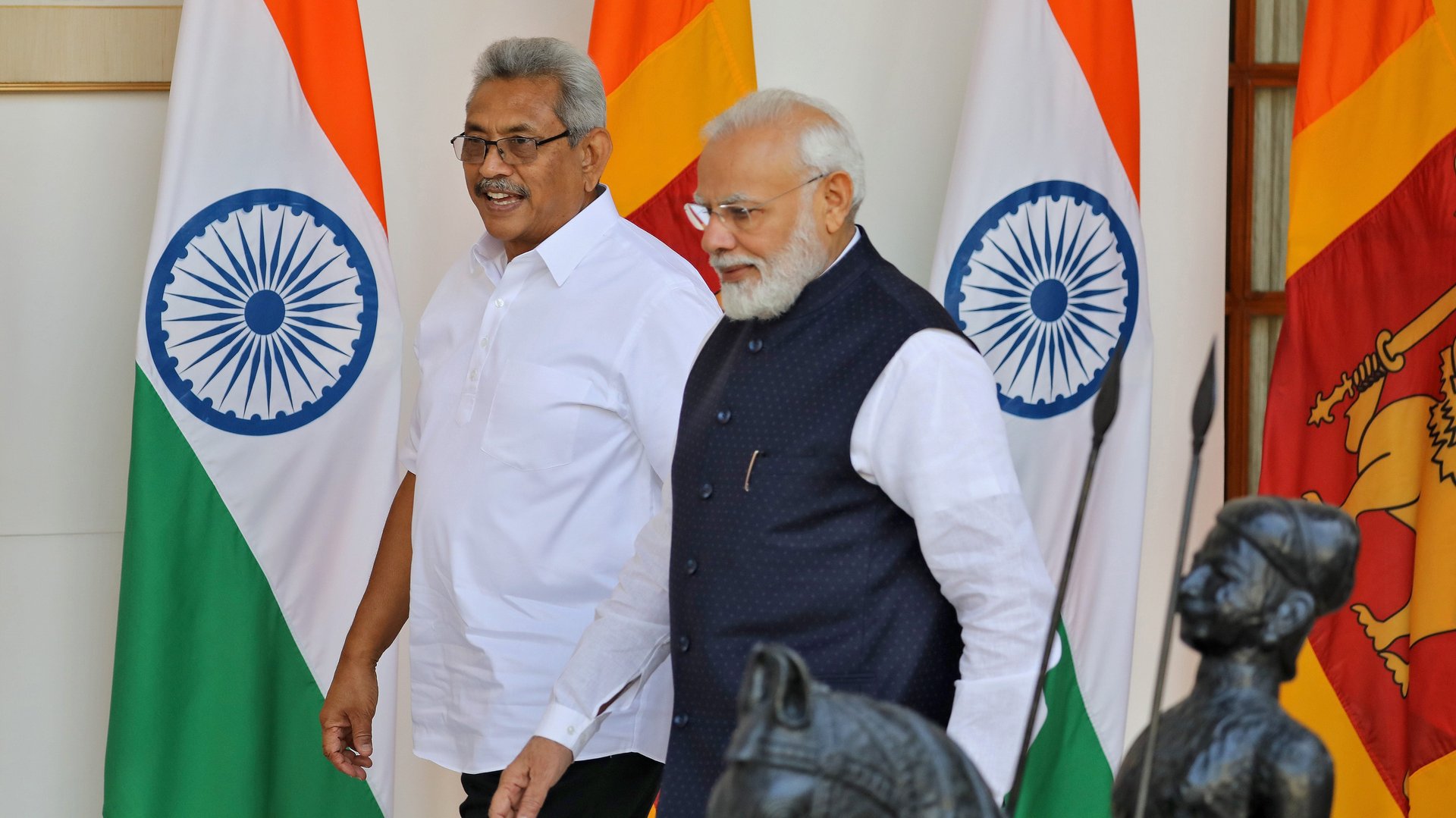Sri Lanka’s worsening economic crisis may have triggered an exodus towards India
Sri Lanka’s dire economic conditions, sparked by the covid-19 pandemic, are pushing its citizens off the cliff, forcing them to flee to Indian shores clandestinely to escape food shortages.


Sri Lanka’s dire economic conditions, sparked by the covid-19 pandemic, are pushing its citizens off the cliff, forcing them to flee to Indian shores clandestinely to escape food shortages.
On March 22, up to 16 Sri Lankan nationals, including eight children, reached the southern Indian state of Tamil Nadu in two batches on fishing boats, according to The Indian Express newspaper. They hailed from Sri Lanka’s northern districts of Mannar and Jaffna. They were rescued by the Indian coast guard.
This, however, could only be the beginning. Intelligence officers in Tamil Nadu, the report said, have got information that “around 2,000 refugees” are likely to arrive over the next few weeks.
“Construction workers and daily wagers are struggling due to inflation across the country…More people are likely to leave the country unless the economy stabilises,” said Suresh Premachandran, who heads Sri Lanka‘s political outfit Eelam People’s Revolutionary Liberation Front.
The meltdown highlights the poor policy response by the Sri Lankan government when its tourism sector took a beating due to the covid-19 pandemic two years ago.
State of the Sri Lankan economy
In 2020, the pandemic skewered tourism, one of Sri Lanka’s main foreign exchange-earners. This led to a dollar crisis in the Emerald Island.
Sri Lanka is heavily dependent on imports of essential items such as petroleum, food, paper, sugar, lentils, medicines, and transportation equipment. With the Central Bank of Sri Lanka’s foreign exchange reserves dwindling to around $2.3 billion (17,536 crore rupees) now—nearly half of what it was a year ago—the country has barely any money to pay for these imports or to service its external debt.
Sri Lanka’s dollar-denominated debt repayments due this year amount to more than $6 billion, including a sovereign bond of $1 billion maturing in July.
The effect is quite evident.
The government has had to cancel school examinations scheduled over the past weekend due to an acute shortage of printing paper. Its only fuel refinery ran out of crude oil in November 2021. Nearly 1,000 bakeries across the country shut down due to the unavailability of cooking gas—some shifted to kerosene, Reuters reported.
Consumer prices have risen by 15% in February, the fastest among 13 Asian economies.
India’s ties with Sri Lanka
India has, time and again, provided assistance on several fronts to its neighbour to tide over its economic crisis.
Since January, it has helped with $2.4 billion, including a $400-million currency swap and a $500-million loan deferment for two months. On March 17, Sri Lanka signed a $1-billion credit line with India for the procurement of food, medicines, and other essential items.
Historically, both countries have maintained a cordial and relatively stable relationship since their independence. In the post-Liberation Tigers of Tamil Eelam era, India and Sri Lanka have aligned over key security and economic objectives, including freedom of navigation in the Indian Ocean region and combating the threat of terrorism.
However, Sri Lanka has also increasingly sided with China over the past few years, which is a threat to India.
“Sri Lanka’s embrace of China largely stems from two factors. First, Sri Lankans continue to be suspicious about India’s motives vis-a-vis the Tamil cause. Second, India’s slow bureaucratic processes that delay approvals incite suspicions of India’s commitment to Sri Lanka,” a global think tank Observer Research Foundation said in a report.
Sri Lanka has had a chronic ethnic Tamil dissidence problem, which in the past has received moral and material support from sections of the Indian population. The southern Indian state of Tamil Nadu, only a few miles across the sea from northern Sri Lanka, has strong ethnic, linguistic, and cultural connections to these disgruntled segments in the island nation.